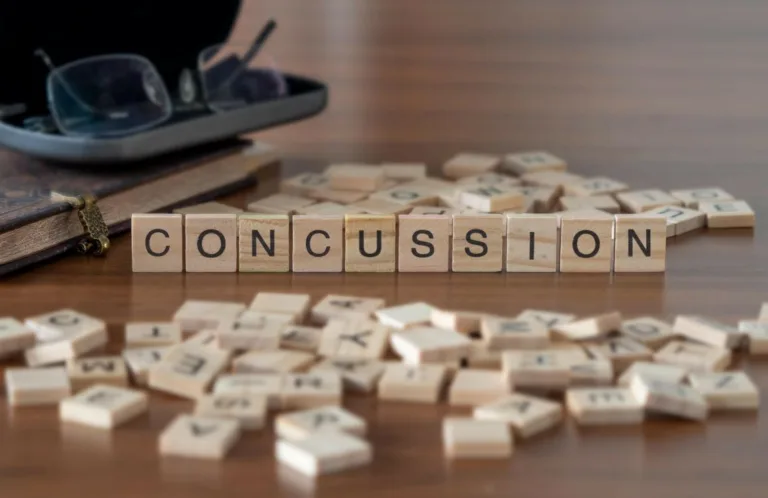Concussion from A Car Accident
Hidden Dangers You Must Know
Don’t overlook the danger of concussion from a car accident. Explore the symptoms and understand the need for early detection. Call 954-900-5072
Car accidents can have far-reaching consequences, some of which are not immediately evident.
One such hidden danger is the potential for concussions resulting from the impact. Often overshadowed by more visible injuries, a concussion from a car accident can be deceptive, with its effects taking time to surface. In this article, we delve into the concealed dangers of concussions caused by car accidents and the critical importance of understanding and addressing them promptly.
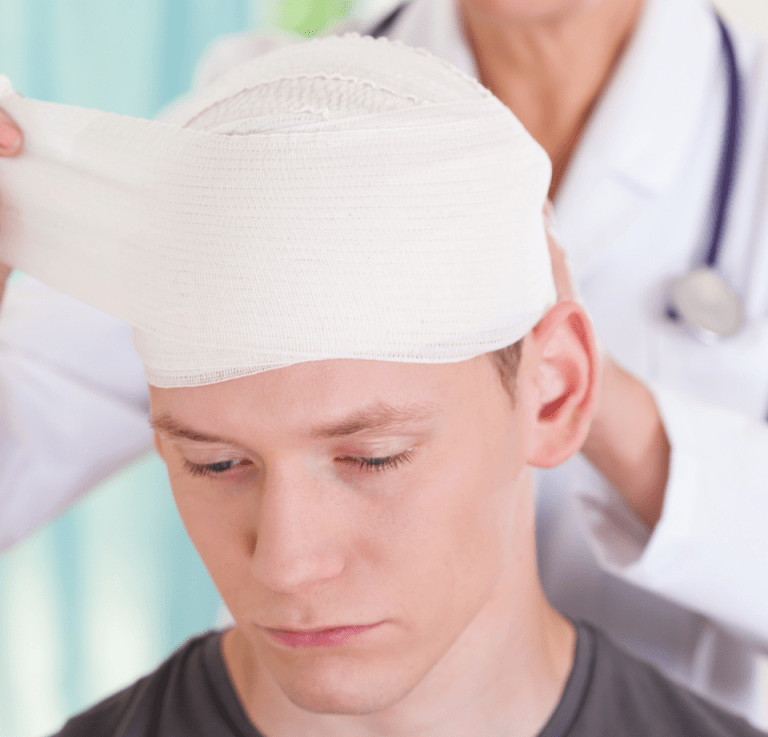
A Concussion From a car accident
can have hidden, lasting effects.
Learn About Their Concealed Dangers And Why Immediate Action Matters.
The Intricate Dynamics of Concussion from a Car Accident
The human brain is a delicate organ, housed within the protective skull.
However, during a car accident, the brain can sustain injury through sudden acceleration or deceleration, even without a direct impact to the head. The force of the collision can cause the brain to collide against the interior of the skull, resulting in a concussion. Factors such as the speed of the collision, direction of impact, and the position of the occupants all contribute to the risk of concussions.
Unmasking the Subtle Symptoms
The delayed onset of symptoms from concussions brought on by auto accidents is one of their most dangerous elements. It is simple to underestimate the severity of the damage because it might not be immediately noticeable after the collision. Key signs to be on the lookout for include:
1
Persistent Headaches:
Continual and often intensifying headaches that do not respond well to pain relief.
2
Cognitive Cloudiness:
Difficulty concentrating, confusion, and memory lapses.
3
Nausea and Vomiting:
Feeling queasy or vomiting, sometimes without clear cause.
4
Balance and Coordination Issues:
Dizziness, difficulty with balance, and unsteady walking.
5
Sensory Sensitivities:
Heightened sensitivity to light and noise.
6
Mood Swings:
Unexplained changes in mood, irritability, and emotional instability.
7
Sleep Disturbances:
Alterations in sleep patterns, including insomnia or excessive sleepiness.
Concealed Hazards of Neglected Concussion From A Car Accident
1
Prolonged Recovery:
Disregarding a concussion can lead to a longer and more complicated healing process.
2
Second Impact Syndrome:
Subsequent head injuries before the first one has healed can result in catastrophic brain damage or even death.
3
Cognitive Impairment:
Untreated concussions can result in lasting cognitive issues, affecting memory, focus, and decision-making.
4
Heightened Vulnerability:
Individuals who have experienced a concussion are at a heightened risk of suffering subsequent ones, with each incident compounding the damage.
Empowering Yourself for Recovery
1
Immediate Medical Assessment:
Regardless of noticeable symptoms, seek medical evaluation after a car accident to identify any concealed injuries.
2
Adherence to Medical Advice:
If diagnosed with a concussion, strictly follow medical recommendations regarding rest, medications, and activity limitations.
3
Ongoing Symptom Monitoring:
Stay vigilant about your symptoms; any escalation or new symptoms should prompt immediate medical attention.
4
Communication with Insurers:
Inform your insurance company about the concussion to ensure comprehensive coverage for medical expenses and potential legal actions.
The Role of Neuropsychologists at Radius TBI
Neuropsychologists are clinical psychologists with specialized knowledge in understanding the connection between brain function and behavior. They are essential in diagnosing concussions resulting from car accidents. Here is how neuropsychologists contribute to the process:
Comprehensive Assessment: Neuropsychologists conduct thorough evaluations of people who have suffered a head injury due to a car accident. This assessment includes the review of medical history, cognitive testing, psychological evaluations, and interviews with the patient and their family members.
Objective Measurement: Neuropsychological evaluations involve standardized tests that measure different cognitive functions such as memory, attention, processing speed, and executive functioning. These tests provide factual information on the extent of cognitive impairment.
Differential Diagnosis: Neuropsychologists play a significant role in differentiating a concussion from other conditions like depression or post-traumatic stress disorder (PTSD) that may exhibit similar symptoms. Accurate diagnosis is crucial for appropriate treatment planning.
Baseline Testing: In some cases, people who are at risk of getting a concussion, such as athletes, may undergo baseline testing before an accident occurs. This helps neuropsychologists compare pre- and post-injury cognitive function, which aids in diagnosis and treatment decisions.
Treatment Planning: After diagnosing a concussion, neuropsychologists collaborate with other healthcare professionals, such as neurologists or physical therapists, to develop a personalized treatment plan. This may include cognitive rehabilitation, symptom management, and psychological support.
Monitoring and Recovery: Neuropsychologists continue to work with patients throughout their recovery, tracking progress and adjusting treatment strategies as necessary. They play a critical role in helping individuals return to their normal daily activities, including work and leisure.
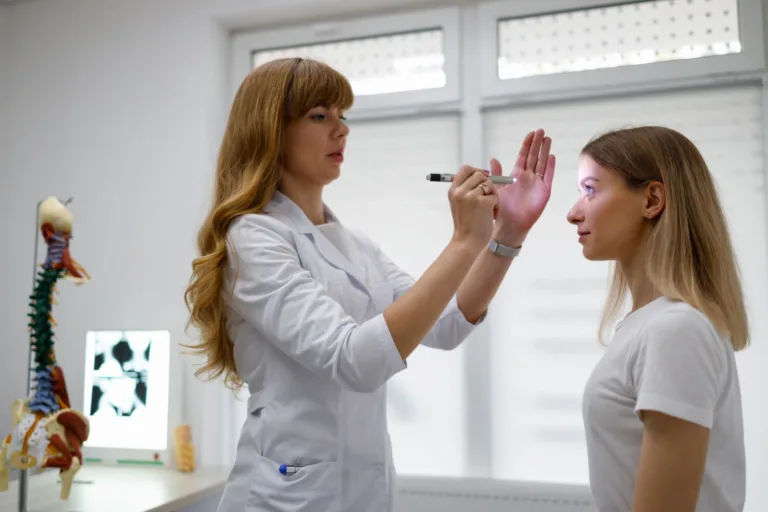
The Role of Neurologists at Radius TBI
Neurologists are medical specialists with expertise in diagnosing and treating disorders of the nervous system, including concussions resulting from car accidents. These mild traumatic brain injuries (mTBIs) can have lasting consequences, making the role of neurologists crucial in ensuring accurate diagnosis, appropriate treatment, and optimal recovery for affected individuals.
Neurologists play a pivotal role in diagnosing concussions from car accidents. Their expertise is vital in several key aspects:
Clinical Evaluation: Neurologists conduct comprehensive clinical assessments of individuals who have experienced a head injury in a car accident. These assessments include a detailed medical history, physical examination, and neurological testing to identify any signs of brain injury.
Imaging Studies: In some cases, neurologists may order neuroimaging studies, such as CT scans or MRI scans, to visualize the brain and detect any structural abnormalities or bleeding. While these imaging studies are often normal in concussion cases, they help rule out more severe injuries.
Symptom Assessment: Neurologists evaluate a wide range of symptoms associated with concussions, including headaches, dizziness, nausea, memory problems, difficulty concentrating, and mood disturbances. Accurate symptom assessment guides diagnosis and treatment decisions.
Differential Diagnosis: Neurologists are trained to differentiate between a concussion and other conditions that may mimic its symptoms, such as migraines, post-traumatic stress disorder (PTSD), or epilepsy. This differential diagnosis ensures that the correct condition is treated appropriately.
Baseline Testing: In some cases, neurologists may recommend baseline testing for individuals at risk of concussions, such as athletes. These tests provide a reference point for assessing cognitive function before and after an injury, aiding in diagnosis and recovery planning.
Treatment Planning: Once a concussion diagnosis is confirmed, neurologists collaborate with other healthcare professionals, including neuropsychologists and physical therapists, to develop a tailored treatment plan. This plan may include rest, symptom management, and cognitive rehabilitation.
Follow-Up and Monitoring: Neurologists continue to monitor patients throughout their recovery, tracking symptoms and assessing progress. Adjustments to the treatment plan are made as needed to ensure the best possible outcome.
Importance of Early Diagnosis
Early diagnosis of concussions resulting from car accidents is critical for several reasons:
Timely Intervention: Early identification allows for prompt intervention, reducing the risk of complications and improving the chances of a full recovery.
Legal and Insurance Purposes: A neurologist’s diagnosis and medical records can be essential for legal and insurance claims related to the car accident and the resulting head injury.
Improved Outcomes: Early treatment and symptom management can significantly improve a patient’s quality of life by addressing cognitive, emotional, and physical symptoms effectively.
Our professionals in the fields of neurology and neuropsychology play a crucial role in identifying concussions caused by car accidents. Neurologists utilize clinical evaluations, symptom assessments, and neuroimaging to detect brain injuries while ruling out other conditions.
Meanwhile, neuropsychologists focus on evaluating cognitive and emotional aspects through comprehensive assessments, cognitive testing, and psychological evaluations. By combining their expertise, they are able to provide a comprehensive understanding of the injury, leading to an accurate diagnosis and a customized treatment plan that addresses both the physical and cognitive aspects of post-concussive syndrome.
This multidisciplinary approach results in improved patient care and a more complete recovery after a concussion caused by a car accident.
Ignoring car accident concussions can lead to lasting damage.
It's important to note that a concussion caused by a car accident may not be immediately visible, but its effects can be long-lasting. Being informed about the mechanics of concussions, recognizing the delayed symptoms, and taking proactive measures are essential for reducing the risks associated with this hidden injury.
By prioritizing your health, seeking prompt medical intervention, and embracing a patient recovery journey, you can navigate the path to healing with awareness and resilience.
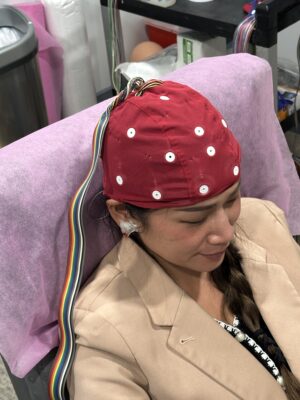
In the world of neuroscience, one of the advanced tools used to understand brain function is the Quantitative Electroencephalogram (QEEG), often referred to as brain mapping. But who interprets these intricate brain maps, and why is their expertise crucial?
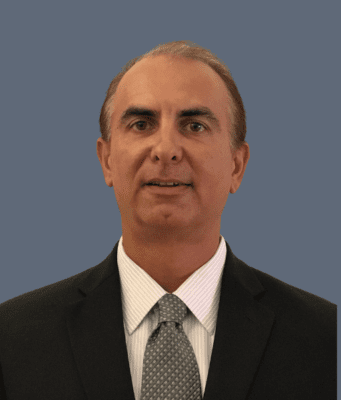
Meet Our No.1 Best Neuropsychologist in Tampa, FL Location
At Radius TBI, we pride ourselves on providing exceptional care for individuals suffering from traumatic brain injuries (TBI) and concussions. Our integrated medical team in Tampa, FL, includes some of the most respected and experienced professionals in the field, ensuring comprehensive and personalized care for
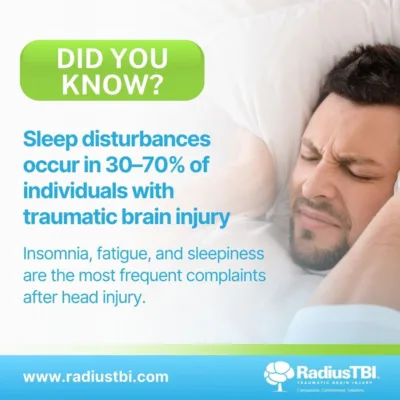
Did you know? Dealing with a traumatic brain injury (TBI) often means navigating a range of complications, one of the most prevalent being sleep disturbances. Surprisingly, 30-70% of individuals with a TBI experience some form of sleep disruption according to a study published on NCBI.
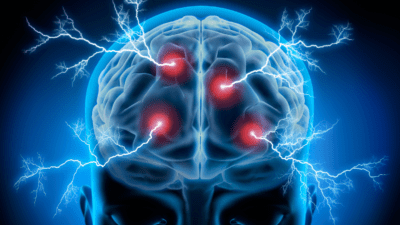
Understanding Routine EEG, QEEG, and Ambulatory EEG Tests
EEG, QEEG, and Ambulatory EEG are distinct forms of electroencephalography, each serving unique purposes in the diagnosis and monitoring of neurological conditions.


